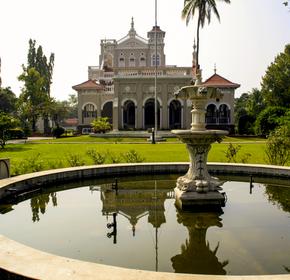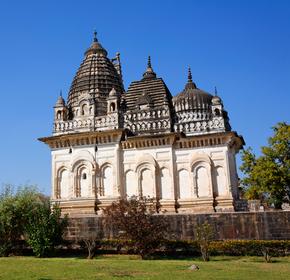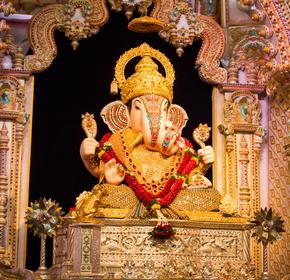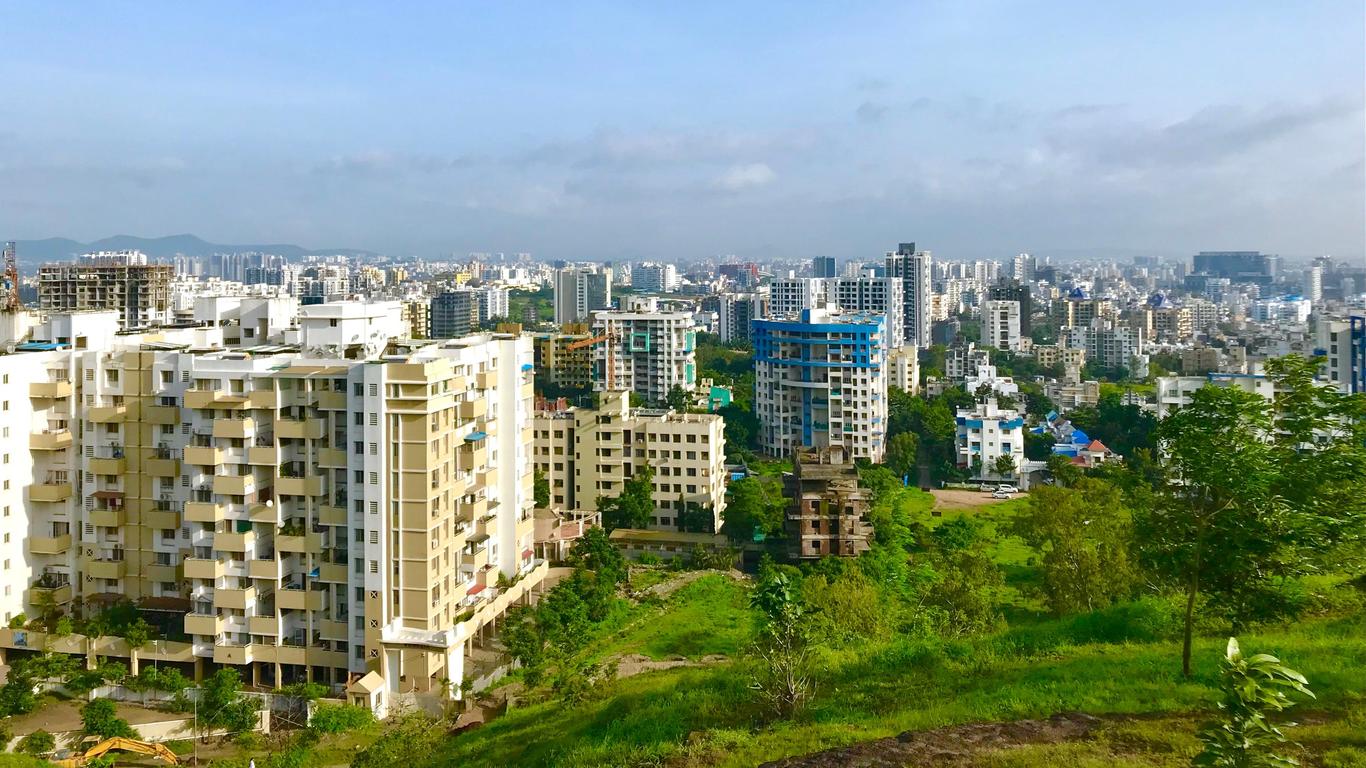
Pune travel guide
Pune Tourism | Pune Guide
You're Going to Love Pune
One of the hubs of colonial India and now a thriving tech and commercial center, Pune offers a galaxy of sights and experiences. From ashrams to elegant palaces, superb food, and offbeat museums to tranquil gardens and a huge student population, Pune has it all.
Top 5 Reasons to Visit Pune
1. A Wealth of Historical Sights
Visitors can tour the 18th-century Peshawar Shaniwar Wada fort, delve even deeper in time at nearby Sinhagad, or tour the city's colonial-era highlights, including the university buildings and the Aga Khan Palace.
2. Fascinating Museums
Pune's museums range wildly, from the Raja Dinkar Kelkar Museum showcasing everyday Indian life, to the fun Joshi's Museum of Miniature Railways.
3. Inspiring Religious Attractions
Pune is a major Hindu center, and visitors can see sights like the temples on Parvati Hill and Dagdusheth Halwai Ganesh Temple with its massive Ganesha statue.
4. Beautiful Hill Stations Are Nearby
The hills around Pune are a fantastic region to explore. See colonial-era "hill stations" like Malshej Ghat or hike in Pune's own nature areas, like the Bhimashankar Wildlife Sanctuary.
5. An Endless Series of Festivals
Celebrations never seem to cease in Pune. Visit during events like the Sawai Gandharva Bhimsen Mahotsav festival or the Chaturshringi Fair and revel with the locals in style.
What to do in Pune
1. Aga Khan Palace: When Islam Meets Italy
The majestic and architecturally stunning lawns and arches of the Aga Khan Palace also play an important part in the national freedom struggle of leaders like Mahatma Gandhi. It was donated to India by the Islamic leader Aga Khan IV, but has very distinct Italian flourishes. Though it is simply stately and buzzing with travelers these days, its position in history has been contentious. It's where Gandhi was imprisoned at one time and where his wife, Kasturba Gandhi's and his own remains rest. From 9 am to 5:45 pm, visitors can roam its large, cavernous hallways and pose on its covered verandahs. Besides its beauty, the interior space holds a gallery commemorating Gandhi with his personal memorabilia such as clothes and footwear.
2. Shaniwar Wada: A Stronghold for the Strong
The first inhabitant of the residence and fortification of Shaniwar Wada was also India's finest warrior, according to British Army officer Bernard Montgomery: Baji Rao I. From 1720 until 1740, the "Peshwa" or "Prime Minister" ruled and lived in Shaniwar Wada, the seat of the Maratha Empire, until its defeat by the British in 1818. Though the fort was largely destroyed in 1828 by a fire, it is still a huge draw for travelers wanting to witness the sheer gravity of history and its architectural significance. Shaniwar Wada has five intricately designed gates, floors of polished marble, gorgeous overhanging "jharokhas" or balconies, mosaics, and a magnificent lotus-shaped fountain known as Hazari Karanje or, "Fountain of a Thousand Jets" in the Gardens of Shaniwar Wada.
3. Koregaon Park: Park 'n' Play
The area south of the Mula-Mutha River is Koregaon Park, the commercial and residential hub of Pune. It's affluence and lush greenery attract many locals as well as visitors who are looking to do a little shopping before their stay is over. The Koregaon Park area comprises beautiful estates as well as multiplexes with mid-level and luxury brand shopping. Jewel Square Mall is where travelers can even catch a flick or two at the PVR Theaters.
4. The Parvati Temple: 103 Steps to a Scenic View
The Parvati Hill lies 2,100 feet above sea level and, at its very peak, sits the beautiful Parvati Temple, part of the main temple of Devdeveshwara, constructed under the rule of Balaji Baji Rao, the son of Peshwa Paji Rao I. It's a point at which dedicated pilgrims and hikers and travelers can view all of Pune from its highest vantage point. There are 103 steps that lead to the blackstone temple and, on an auspicious day, you can witness several religious ceremonies and prayers going on at once.
5. Phoenix Market City: The Biggest and the Best
Touted as the largest shopping mall in Pune, the Phoenix Market City is a major hub for major brands like Forever 21, Diesel, and Kenneth Cole. It has a giant cinema hall and a large food court that includes local and international eateries like Punjab Grill and Subway
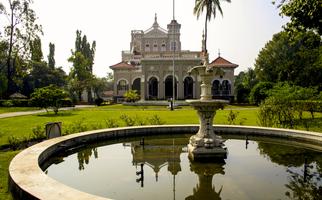
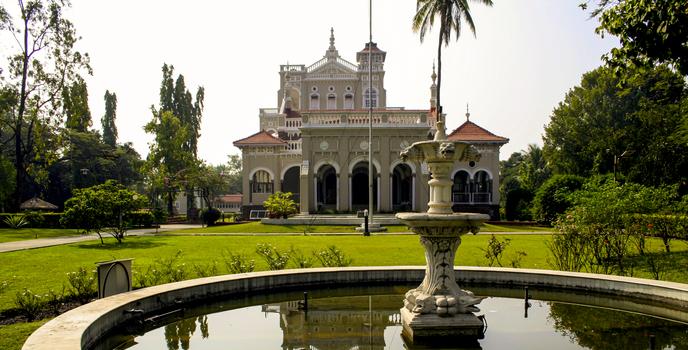
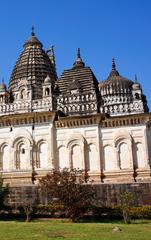
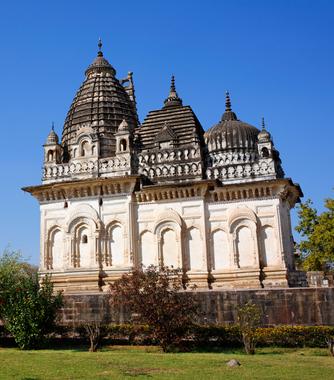
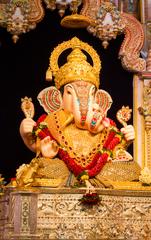
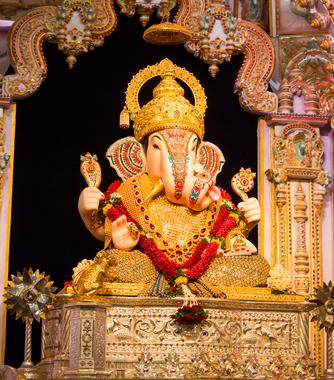
1. Aga Khan Palace: When Islam Meets Italy
The majestic and architecturally stunning lawns and arches of the Aga Khan Palace also play an important part in the national freedom struggle of leaders like Mahatma Gandhi. It was donated to India by the Islamic leader Aga Khan IV, but has very distinct Italian flourishes. Though it is simply stately and buzzing with travelers these days, its position in history has been contentious. It's where Gandhi was imprisoned at one time and where his wife, Kasturba Gandhi's and his own remains rest. From 9 am to 5:45 pm, visitors can roam its large, cavernous hallways and pose on its covered verandahs. Besides its beauty, the interior space holds a gallery commemorating Gandhi with his personal memorabilia such as clothes and footwear.
2. Shaniwar Wada: A Stronghold for the Strong
The first inhabitant of the residence and fortification of Shaniwar Wada was also India's finest warrior, according to British Army officer Bernard Montgomery: Baji Rao I. From 1720 until 1740, the "Peshwa" or "Prime Minister" ruled and lived in Shaniwar Wada, the seat of the Maratha Empire, until its defeat by the British in 1818. Though the fort was largely destroyed in 1828 by a fire, it is still a huge draw for travelers wanting to witness the sheer gravity of history and its architectural significance. Shaniwar Wada has five intricately designed gates, floors of polished marble, gorgeous overhanging "jharokhas" or balconies, mosaics, and a magnificent lotus-shaped fountain known as Hazari Karanje or, "Fountain of a Thousand Jets" in the Gardens of Shaniwar Wada.
3. Koregaon Park: Park 'n' Play
The area south of the Mula-Mutha River is Koregaon Park, the commercial and residential hub of Pune. It's affluence and lush greenery attract many locals as well as visitors who are looking to do a little shopping before their stay is over. The Koregaon Park area comprises beautiful estates as well as multiplexes with mid-level and luxury brand shopping. Jewel Square Mall is where travelers can even catch a flick or two at the PVR Theaters.
4. The Parvati Temple: 103 Steps to a Scenic View
The Parvati Hill lies 2,100 feet above sea level and, at its very peak, sits the beautiful Parvati Temple, part of the main temple of Devdeveshwara, constructed under the rule of Balaji Baji Rao, the son of Peshwa Paji Rao I. It's a point at which dedicated pilgrims and hikers and travelers can view all of Pune from its highest vantage point. There are 103 steps that lead to the blackstone temple and, on an auspicious day, you can witness several religious ceremonies and prayers going on at once.
5. Phoenix Market City: The Biggest and the Best
Touted as the largest shopping mall in Pune, the Phoenix Market City is a major hub for major brands like Forever 21, Diesel, and Kenneth Cole. It has a giant cinema hall and a large food court that includes local and international eateries like Punjab Grill and Subway






Where to Eat in Pune
Top restaurants in Pune include Malaka Spice, which serves up delectable curries and Asian fusion dishes, as well as Mayur, which is renowned for its thalis. Expect meals to be cheap, at around ₹300-400 per head.
When to visit Pune
One of the great things about Pune is its mild climate. You can visit almost any time of year, except perhaps for May and June, when the heat can be intense, or the height of the monsoon in August.
How to Get to Pune
Plane
The nearest international airport is Mumbai, which is around three hours by taxi from Pune (₹1,400-1,700).
Train
Pune has a vast array of rail connections with major Indian cities like New Delhi, Mumbai, and Ahmedabad.
Car
From Mumbai, take the Mumbai Highway straight to Pune. From New Delhi, take AH47 to Mumbai, then switch to the Mumbai Highway.
Bus
There are daily bus services from Mumbai, all of which stop at the railway station, very close to the center of town.
Airlines serving Pune
Where to stay in Pune
Deccan Gymkhana - the liveliest central neighborhood in Pune, Deccan Gymkhana has some great places to eat like Cafe Goodluck, and lies at the meeting point of the city's major transport arteries.
Popular Neighborhoods in Pune
The Peths - the most ancient part of the city, the Peths are a network of tight alleyways that are lined by craft stalls and street food vendors. It's a great place to wander around.
Koregaon Park - Pune's most exclusive neighborhood, and the place to head for jewelry boutiques like Sangeeta Boochra or restaurants like Malaka Spice.
Where to stay in popular areas of Pune
Most booked hotels in Pune
How to Get Around Pune
Public Transportation
PMPML runs an extensive, but often frustrating, bus network around Pune. It's cheap, though, at just ₹14-22 per journey.
Taxi
Auto-rickshaws are the most popular taxi option in Pune. Prices will be around ₹17 for the first mile, then ₹11 for every subsequent mile. Taxis are also available for around ₹15 per mile.
Car
You can rent a car from branches of Rent A Car Pune, Sixt, and Allied for around ₹450 per day.
The Cost of Living in Pune
Shopping Streets
The best places to snap up bargain souvenirs are bustling markets like Juna Bazaar, Tulsi Baug, or Phule Market. However, for more upmarket products, check out Fashion Street or Laxmi Road, where hand-made accessories are a specialty.
Groceries and Other
Local supermarkets include Reliance Fresh and More. For comparison, expect a gallon of milk to cost around ₹46.
